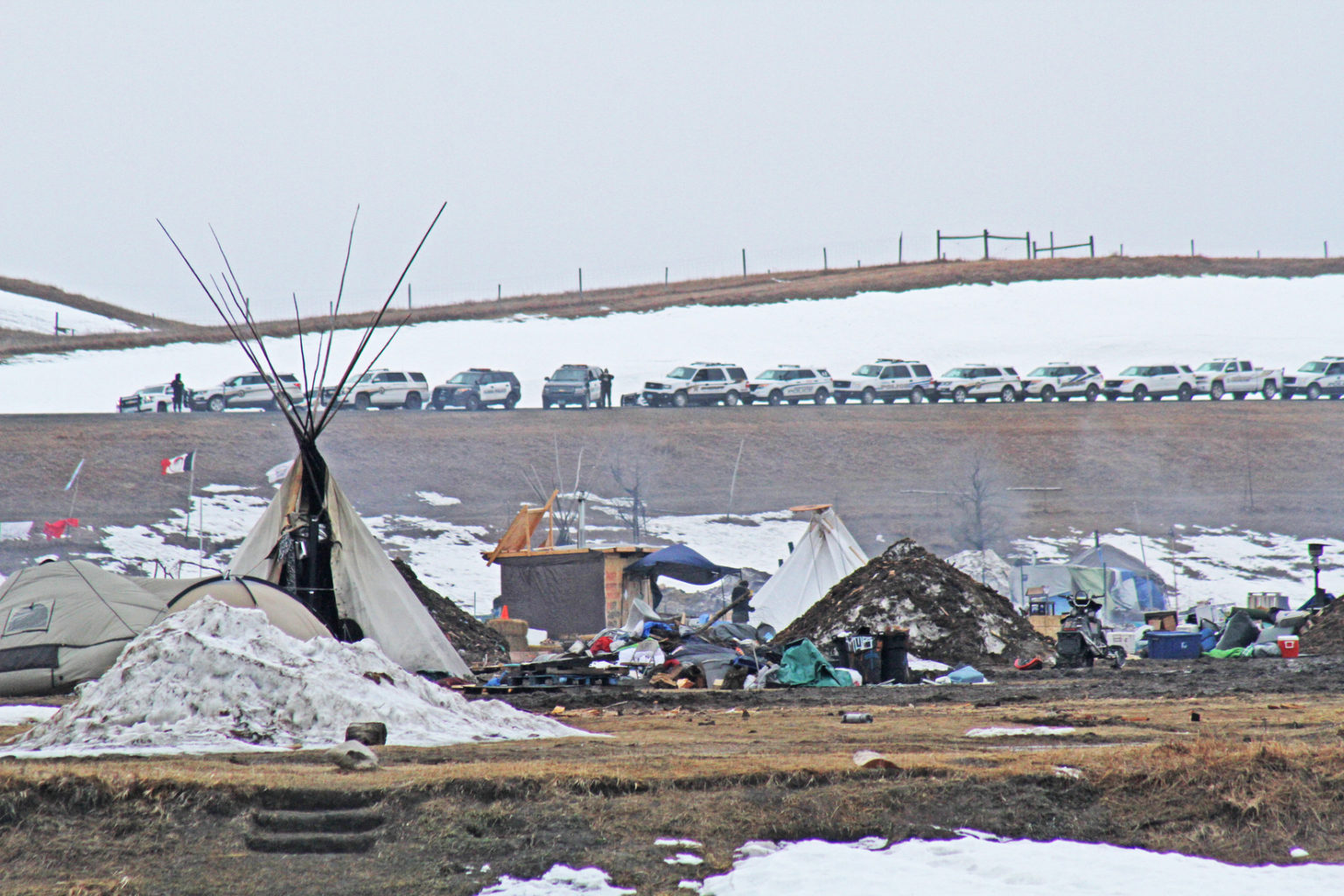The Green Party has issued a letter to the chief executives of all UK banks currently financing the controversial Dakota Access Pipeline asking them to “immediately suspend all credit lines”.
Despite previous calls for British institutions to divest from the polluting project, financial data reveals Barclays and HSBC continue to bankroll the companies constructing the pipeline.
Signed by party co-leaders Caroline Lucas and Jonathan Bartley and four other party members, the Green Party letter calls on Barclays and HSBC to stop funding the U.S. pipeline project due to its impact on the climate and indigenous communities.
Calling the pipeline a “barrier to climate safety,” they write: “The Dakota Access Pipeline is a major fossil fuel infrastructure project, and thus represents exactly the kind of project that should no longer receive the support of those with a serious commitment to tackling the climate crisis.”
The 17 February letter continues: “We ask you to remember that this project had already been put on hold by the Obama Administration due in part to wide-spread concerns about its environmental impacts. The restart of this project by a President whose administration has actively cast doubt on basic climate science – and after the brave protests by indigenous people, climate protesters and many other citizens inside and outside the US – is deeply alarming.”
A DeSmog UK analysis of Bloomberg data of the British banks shows that Barclays’ investment in the pipeline companies comes to just over $151.6 million according to the latest end of year filings. HSBC’s investment comes to a total value of $229.9 million.
This represents the value of the banks’ shares held in the various companies responsible for constructing the pipeline. This includes Energy Transfer Partners, Energy Transfer Equity, and Sunoco Logistics.
.@TheGreenParty is calling on UK banks (inc @HSBC @Barclays) to stop funding climate-wrecking #DakotaAccess Pipeline. #KeepItInTheGround pic.twitter.com/DBa5zyQ5Hf
— Caroline Lucas (@CarolineLucas) February 28, 2017
The Green Party letter is also addressed to ICBC London, a Chinese bank with headquarters in London, which according to data from last December has $120 million invested in the pipeline project.
The British banks are also directly involved in bankrolling the Dakota Access pipeline through their loans and credit facilities to these U.S. energy companies.
As data collected by Food and Water Watch shows, over the last five years Barclays, HSBC, and the Royal Bank of Scotland (RBS) had together put more than $800 million towards financing the pipeline’s construction.
Since then however, RBS has claimed to have “exited the relationship”. As an RBS press officer told DeSmog UK: “In the past, RBS did provide general finance to Energy Transfer Partners LP and Energy Transfer Equity LP, (the parent company of Dakota Access LLC), but we exited these relationships in September 2015 and November 2015 respectively.
“We no longer have a significant presence in North America as a result of our strategy to become a smaller, simpler bank focused on the UK, the Republic of Ireland and Western Europe. As a result of these changes, our overall lending to energy sectors – including coal, oil and gas – has declined by 75 percent since 2010.”
Meanwhile, the data up to November 2016 shows Barclays had provided $175 million as part of a revolving credit line for Energy Transfer Partners, $65 million as a loan package to Energy Transfer Equity and $130 million for a credit line for Sunoco Logistics. HSBC’s loans to the Energy Transfer Partners and Energy Transfer Equity come to a total $189 million. These loans are set to mature by 2020.
In its reply to the Green Party’s letter, seen by DeSmog UK, HSBC acknowledged that climate change is “one of the most serious threats that the world faces today” and explains it does its due diligence to “determine if there is an unacceptable impact on people and the environment from a company’s operations and where we feel that risk is unacceptable we exit relationships.”
It continues: “We know that banks have a role to play in combating climate change; we believe that HSBC is playing its part; and we want to do more in the transition to a low-carbon economy.”
However, it did not address its investment in the pipeline, saying: “HSBC does not and cannot discuss individual customers, nor do we confirm whether an individual or business is or has been a customer, for reasons of client confidentiality.”
Barclays and HSBC are also invested in Phillips 66, which in conjunction with Sunoco Logistics and Energy Transfer Partners has proposed building the Bayou Bridge pipeline – the tail end of the Dakota Access pipeline that would bring oil fracked in North Dakota to Louisiana. According to Bloomberg data accessed this week, Barclay’s shares in Phillips 66 are currently valued at $54 million while HSBC has $59.14 million in shares invested.
More and more attention is turning to this section of the pipeline as the permitting process gets underway with environmentalists calling for Louisiana agencies to deny the permits needed to begin construction. If built, the 163-mile-long pipeline would stretch across from south Louisiana from Lake Charles through the Atchafalaya Basin to St. James, a community on the Mississippi River. Some activists describing themselves as “water protectors” have warned the battle to stop this pipeline could turn the Atchafalaya Basin into the next Standing Rock.
This article was updated to include HSBC‘s response to the Green Party’s letter.
Photo: Dark Sevier via Flickr | CC 2.0
Subscribe to our newsletter
Stay up to date with DeSmog news and alerts






